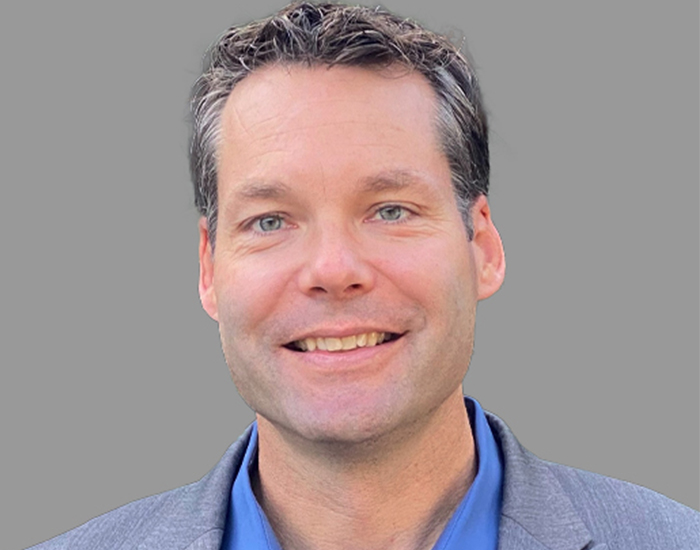When Tom Storey, ’03 MBS, enrolled in Keck Graduate Institute (KGI)’s fledgling Master of Business and Science in Biotechnology (MBS) program, there were no alumni to reassure him — only the promise of building something unprecedented.
“It all felt very entrepreneurial and very startup-like,” he recalled. “Doing something innovative and new really attracted me."
That appetite for innovation has defined Storey’s career ever since. After 15 successful years in business development at Amgen, he now serves as head of business development at Angitia Biopharmaceuticals, a small company in Westlake Village.
The company is developing three novel biologics, including treatments for postmenopausal osteoporosis and a rare pediatric disorder known as osteogenesis imperfecta ("brittle bone disease"). For Storey, the transition offered a return to his entrepreneurial roots and a chance to make a direct impact in an area he had long supported: bone health.
A Curriculum Built for Industry Impact
When Storey arrived at KGI, he had already spent years in the labs.
"I knew I didn't want to be a bench scientist," Storey said. "At the same time, I loved the technology, genetics, and all of the wonderful things that we're able to accomplish in the industry. I wanted to be at the intersection of science and business. KGI seemed to be located at that nexus."
Upon visiting the campus, he met James (Jim) Cregg, professor emeritus and one of KGI's founding faculty members.
"As it turns out, he knew the biochemistry professor at Whitman College, where I got my BA," Storey said. "Because we had that connection, I felt comfortable right away."
He was further encouraged by KGI's focus on computational biology and genomics, which aligned with his background in neuroscience informatics.
Still, the MBS program exceeded his expectations. It equipped him with both the business acumen and technical proficiency needed to excel in biotech business development.
Courses on analytical methods and drug discovery instrumentation covering mass spectrometry, high-performance liquid chromatography (HPLC), electrophoresis, and more — such as those taught by Angelika Neimz, now dean of the Henry E. Riggs School of Applied Life Sciences — proved “massively helpful” once he began evaluating drug candidates and drug discovery technologies for inclusion in Amgen’s pipeline.
“I could read the plots coming off those instruments from the pitch decks of biotech companies and understand what they were doing, which allowed me to engage with the scientists using their language,” Storey said. “This technical literacy has positively differentiated me throughout my career, as I could effectively communicate with the scientists and clinicians and ultimately help the firm make the best decision possible."
Equally valuable were the relationships forged in KGI’s small-cohort environment.
"I've built some lasting friendships — in fact, I just attended the high school graduation party for one of my friend's sons," Storey said. “The crucible of those early years really catalyzed deep connections."
Giving Back Through the Team Master’s Project
Storey’s connection to KGI did not end at graduation. While still at Amgen, he returned as a corporate liaison for a Team Master’s Project (TMP) during the 2019-20 school year that challenged students to improve osteoporosis care. The cross-functional team analyzed hospital care pathways, alternative payment models, and digital-health solutions for post-fracture care.
MBS Program Director and Henry E. Riggs Professor of Management Steven Casper, who served as faculty liaison for the project, sees alumni-sponsored TMPs as a hallmark of KGI’s professional mission.
“Many of our alums really identify with KGI and want to help the program succeed,” Casper said. “One of the best ways they can give back is by working with their companies to sponsor Team Master’s Projects.”
A Message to the Next Generation
Reflecting on KGI’s evolution — from a single program housed in one building to a multi-school institution with more than 1,000 MBS alumni — Storey is optimistic about what comes next.
“I’m flattered to be asked to contribute again and inspire students to realize their full potential,” he said. “There’s immense opportunity in the life sciences, and I think the things that can be accomplished now are even greater than what was available to us back when I first entered the field."
For current and future KGI students, his advice echoes the pioneering spirit that first drew him to the school: embrace uncertainty, stay fluent in both science and business, and build relationships that last. Those ingredients, he believes, will continue to turn bold ideas into therapies that improve lives.
